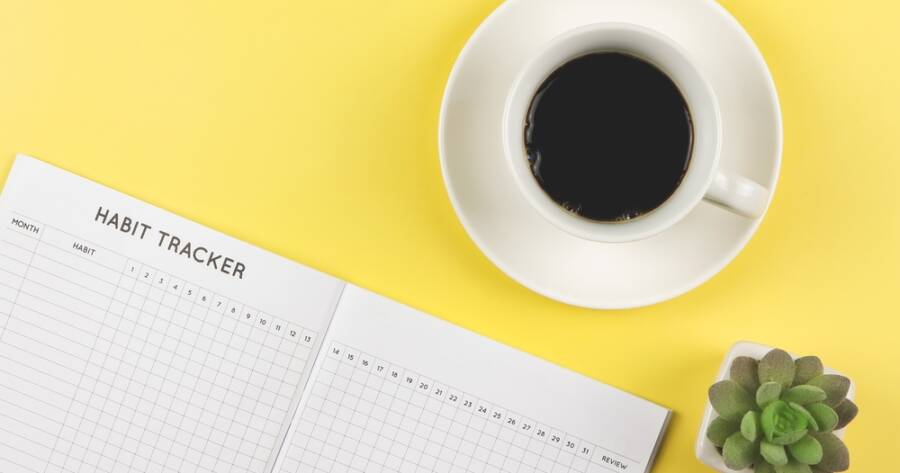Building new habits can be a challenging task, especially if you’re trying to create a lasting change in your routine. Many people turn to 30-day habit trackers, hoping that tracking their progress will help them stay consistent. But can a simple 30-day tracker really lead to lasting change? Explore the potential benefits and limitations of this approach to habit-building.
The Power of Tracking Your Progress
One of the biggest reasons people use habit trackers is because they offer a clear visual of their progress. Tracking daily activities, such as exercise, meditation, or even reading, can create a sense of accomplishment. By marking off each day you successfully complete your habit, you get immediate feedback that motivates you to continue.
The simple act of tracking also promotes consistency. It’s easy to get distracted or forget about new habits, but when you’re tracking them, you have a constant reminder of your commitment. This daily reinforcement can be enough to push you through any challenges or temptations that may arise during the month.
The Psychological Benefits of a 30-Day Challenge
A 30-day period is often seen as a manageable time frame for trying something new. This period is short enough to feel achievable but long enough to develop a sense of routine. Psychologically, having a clear end date can help you stay focused on the goal, making the process feel less overwhelming. It also creates a sense of urgency that can boost motivation to keep going.
Moreover, completing a 30-day habit tracker provides a feeling of accomplishment. When you hit the 30-day mark, there’s a sense of pride that you stayed consistent and followed through. This can create positive momentum that drives you to continue, even after the tracker is completed.
Popular Habit Trackers to Try
Habitica
This app turns your habit-building journey into a game. You create an avatar and earn rewards for completing tasks. It’s ideal for people who enjoy a playful approach to productivity and want to stay motivated through points and challenges.
Streaks
Streaks helps users focus on a few daily habits and encourages consistency by tracking how many days in a row each habit is completed. Its clean design and focus on simplicity make it perfect for those who prefer a minimalist tool without distractions.
Notion
Notion isn’t just a habit tracker—it’s a fully customizable workspace. You can build personalized trackers using tables, calendars, or checklists. This is a great option for users who want total control over how their habit tracking looks and functions.
Why 30 Days Might Not Be Enough for Lasting Change
While 30 days can be a great starting point, the reality is that forming a lasting habit often takes longer than a month. According to research, it can take anywhere from 18 to 254 days to form a new habit, depending on the complexity of the behavior and individual circumstances. A 30-day tracker may help you build consistency, but it doesn’t guarantee that the habit will stick in the long run.
Additionally, the 30-day time frame doesn’t account for the inevitable setbacks that occur during the habit-building process. Life happens—there may be days when you miss a habit or feel too tired to follow through. In such cases, a rigid 30-day tracker can become discouraging if you focus too much on perfect completion rather than gradual progress.
How to Maximize the Effectiveness of a 30-Day Tracker
To make a 30-day habit tracker more effective, it’s important to pair it with strategies that promote long-term success. First, focus on small, achievable goals rather than aiming for perfection. For example, if you’re trying to exercise every day, don’t stress if you miss one day. Instead, try to make up for it on the following day or simply continue with your routine the next day.
Another important strategy is to reflect on the process at the end of each week. Take some time to assess how you’re feeling about the habit. Do you look forward to it, or do you feel burnt out? Adjusting your approach or routine to keep it enjoyable is crucial for maintaining motivation.
Also, consider keeping a habit journal along with your tracker. Reflecting on your daily experience can help you understand why you succeed or where you struggle. By tracking both the habit itself and your emotional or mental state, you gain more insight into what truly helps you stick to the habit.
Is a 30-Day Habit Tracker Enough for Long-Term Change?
A 30-day habit tracker can definitely provide a helpful structure to start building new routines and foster consistency. However, lasting change often requires more than just a month of tracking.
The key is to use the tracker as a foundation while incorporating strategies that maintain your motivation and allow you to adjust as needed.

